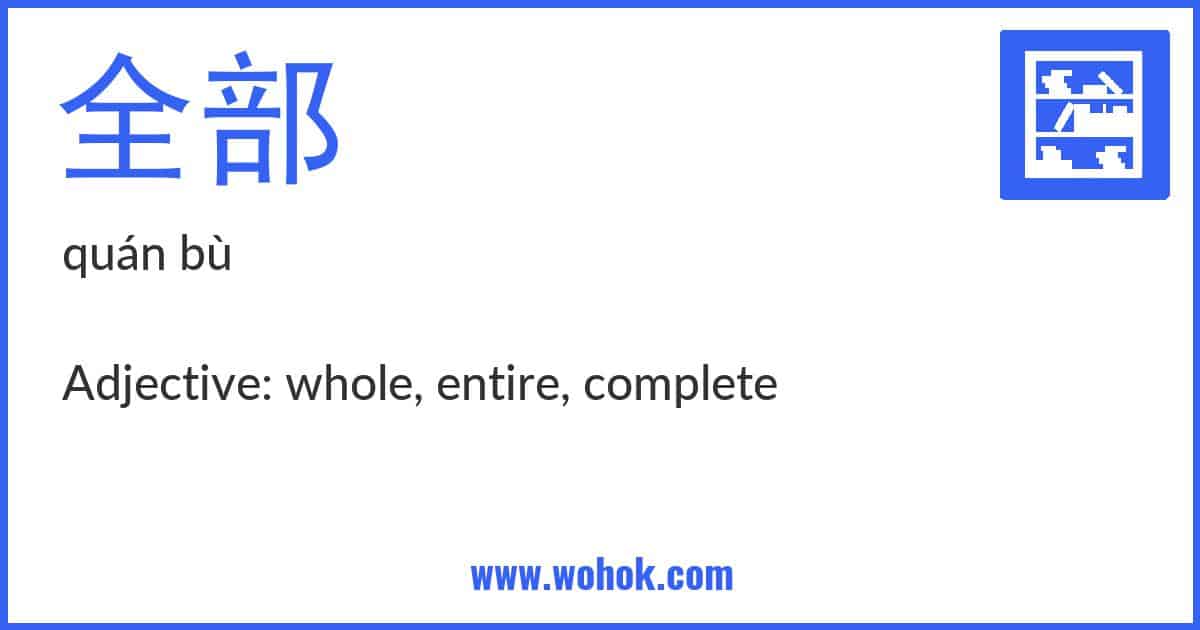The Chinese word 全部 means “all” or “entire”. It is often used to indicate the entirety of something or everything as a whole. For example, you might use 全部 to say “I read the entire book” or “I ate all the food”. It can also be used in a more abstract sense to refer to a complete set of something, such as “the entire collection of paintings” or “all the members of a group”. Overall, 全部 is a versatile and useful word for conveying the idea of completeness or totality in Chinese.
Translation
Adjective: whole, entire, complete
Pronunciation
Example Sentences
| Chinese | Pinyin | Engish |
|---|---|---|
| 我们需要全部的材料才能开始工作 | wǒmen xūyào quánbù de cáiliào cáinéng kāishǐ gōngzuò | We need all the materials to start working |
| 这本书全部是关于历史的 | zhè běn shū quánbù shì guānyú lìshǐ de | This book is all about history |
| 我们必须全部团结起来 | wǒmen bìxū quánbù tuánjié qǐlái | We must all unite together |
| 他把全部的钱都花在了旅游上 | tā bǎ quánbù de qián dōu huā zài le lǚyóu shàng | He spent all his money on traveling |
| 他们的全部家庭财产都捐献给了慈善机构 | tāmen de quánbù jiātíng cáichǎn dōu juānxiàn gěi le císhàn jīgòu | They donated all their family’s assets to charity |
| 我们应该把全部的时间都用来学习 | wǒmen yīnggāi bǎ quánbù de shíjiān dōu yòng lái xuéxí | We should use all our time to study |
| 这个项目需要全部的团队成员的配合 | zhège xiàngmù xūyào quánbù de tuánduì chéngyuán de pèihé | This project requires the cooperation of all team members |
HSK
全部 is part of HSK Level 4 in HSK 2.0. In the newer HSK 3.0 it is part of HSK Level 2.
Learning Card


